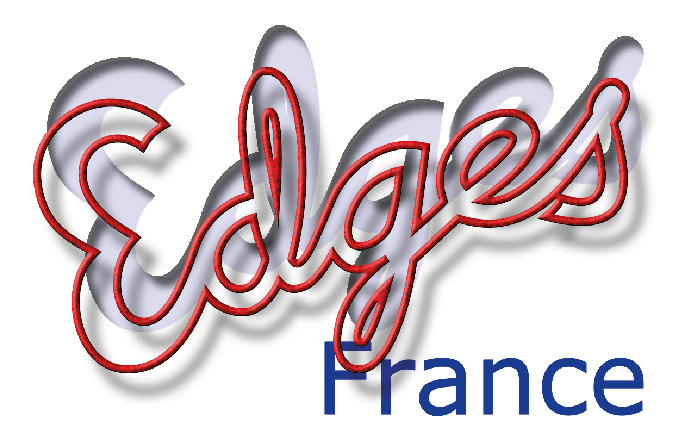The French Academy is a noble institution, dedicated to the preservation of the French language. One of its most difficult tasks is keeping this pristine idiom of past figures such as Voltaire, de Gaulle and Coluche from succumbing to the many American barbarisms which the « outre-Atlantique » imperialist has been trying to conquer it with over the past decades. In spite of the Academy’s most laudable efforts, certain anglicisms have been sneaking into the country anyway.
But in addition to the marginally effective Academy, the French have another, very powerful weapon against this invasion: they chop up and truncate these uncivilized American terms in such a way as to make them totally incomprehensible. It is an interesting linguistic phenomenon, producing some curious locutions which can leave English speakers perplexed.
Take the word « pull », for example. Everyone knows it is a verb meaning « to exert force so as to draw something toward the force » (Webster’s Dictionary). But the French won’t have it that way. In France, the word « pull » is a noun meaning « sweater », or « jumper » in British English. Now, how did this come about? Logically: it is a shortening of « pullover sweater ».
Another example is « self ». Here, this is a cafeteria-type restaurant (shortening of « self-service restaurant »). And then there is « self grill ». Sort of makes you wince, doesn’t it? Well, in Paris this is a cafeteria that will fry a steak for you.
The rule seems to be: take a composite term, shorten it to its first syllable or two, and replace the original term with this. Americans are also guilty of this truncating of foreign terms, of course. Case in point: a certain city in Southern California, whose full name is « El Pueblo de Nuestra Senora de la Reina de los Angeles de Porciuncula », has been shortened by the natives to its last two letters.
But getting back to France, if someone offers to play a game of « foot » with you, don’t take this as a come-on. They are talking about « football » (« soccer » in the U.S.). Likewise, a game of « hand » has nothing to do with the « Jeu de Paume ». And you may want to get ready for the game by putting on your « baskets » (high-tops, or basketball shoes). You may want to wear a « sweat » (sweatshirt) with your « baskets », or perhaps a « jogging ». But if the weather is warm, you would probably rather wear a « short » – in France, they wear these singly. If you are shy, you may retire to your « dressing » to put all these items on.
If you are in someone’s home and ask for « scotch », you are just as likely to get a roll of tape as a glass of whisky. Your hostess may tell you about her « lifting ». Don’t imagine there is much muscular prowess in this accomplishment. She is referring to a face-lift. And if someone tells you they are going to visit the « waters », don’t offer to join them for a dip.
With all this, it would seem the French are well-enough armed against the onslaught, and the Academy could turn its energies to more useful pursuits than continuing the battle against anglicisms. But old habits die hard, and from time to time I hear about some new effort to stave off the invasion.
One of these concerned electronic mail, which was just beginning to become popular in France at the time. The Academy at first tried to frenchify the term, hoping « courrier électronique » would catch on. But in a world of 56 kbps, this was rather cumbersome, so the French insisted on using the English shortened form, « e-mail ». « Well », the Academy said to itself, « if you can’t beat ’em… But at least let’s spell it French! » So they came up with the phonetic transliteration « imél », which many French people promptly shortened to « mél ». Well, the Academy didn’t like that at all, and foisted « courriel » upon the public. Being a matter of official policy, the word was used in government circles for a while, but now most people just say « mail ».


Recent Comments